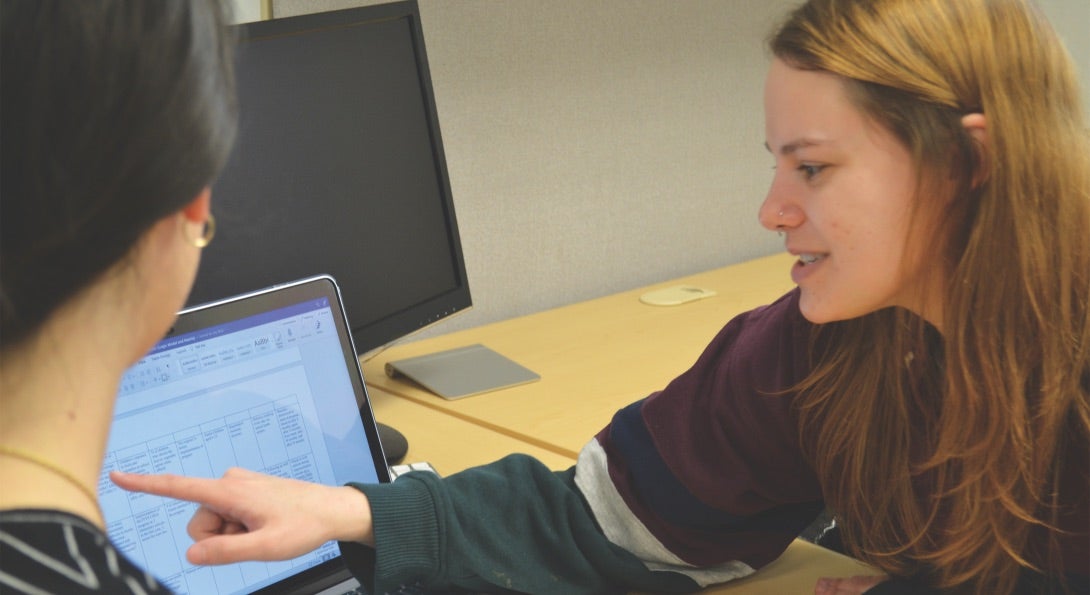Peer support team builds community

Natalie Burda, BA '22, is giving back to SPH's undergraduate programs
Story text
When Natalie Burda began her MPH degree at SPH in fall 2022, a few months after graduating from SPH with a BA in Public Health, she was looking for a way to give back and stay involved with the undergraduate program. With encouragement from SPH’s Cecilia Macias, associate director for student success, leadership development and community engagement, Burda applied for and was accepted to the School’s Peer Support Team, a group of masters and doctoral students dedicated to helping their peers succeed academically in quantitative methods and writing-related courses. Burda has been working with undergraduate students ever since.
“I think I learned the right tools early on, and it’s important to share those tools with others,” Burda said. “I was the first person in my family to go to school and was fortunate to have people supporting me, and I wanted to support those who didn’t have people there for them.”
Burda provides students in the BA and BS in Public Health programs with support across all courses, with both one-on-one meetings and bi-monthly workshops. Her work with students ranges from reading academically to citation support to creating posters for public health conferences. Burda and the Peer Support Team aim to work in concert with faculty, and her workshops are often crafted around upcoming assignments for students.
“There’s so much collaboration behind the scenes, a group effort to help out students who are struggling and to get them excited and passionate,” Burda said. “Especially with COVID, burnout is very real, and we’re trying to focus on helping students through that.”
As an MPH student, Burda is currently pursuing a generalist concentration in environmental and occupational health sciences while looking to build experience in industrial hygiene. She aims to pursue a career in occupational health, working to protect vulnerable populations in the workplace. She says her years in the BA in Public Health program helped build a public health lens to view the world, to identify disparities between communities, identify larger systems at play and begin applying solutions to these challenges.
“I think UIC, and especially SPH, are trying to dismantle the structures of institution and exist differently within these spaces and practice what they preach,” Burda said. “My programs have really reiterated having a person-first lens, beyond just a focus on disparities, making sure we put the needs of individuals first.”